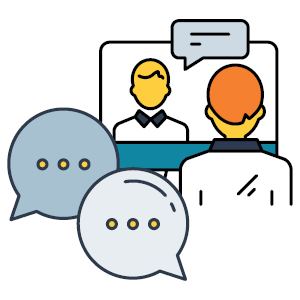
PCA Hours & Rate Increases
Personal Care Assistants (PCAs) provide essential services that help ensure the rights of Minnesotans with disabilities and older adults. While their work is critical, PCAs are among the lowest-paid employees in Minnesota. Prior to COVID-19, Minnesota faced a shortage of PCAs, leaving many people with disabilities without regular access to support for health care and daily living needs.
The crisis of the PCA workforce shortage has been further exacerbated by the pandemic, leading Lifeworks to join forces with other local providers and disability organizations to advocate for emergency hours and rate increases. In March 2020, Lifeworks began activating our networks and encouraging people to reach out to Governor Walz and leaders in the State Legislature. In our advocacy emails, letters, and calls, Lifeworks painted a picture for legislators to better understand how deeply this crisis impacts people with disabilities – who are often at an even higher risk due to underlying health conditions, low income, and food and housing insecurity.
L ifeworks continued to accelerate our legislative advocacy in early April 2020. Many families who receive support from Lifeworks reached out, asking what they could do to make their voice heard. As a result, the Lifeworks Policy Team crafted email templates, phone scripts, and sample social media posts for people to use. Many people from the Lifeworks community reached out to their individual legislators, sharing personal stories about the services they receive from PCAs, and how hours and rate increases would benefit people with disabilities. Thank you to all of you who advocated for PCAs.
ifeworks continued to accelerate our legislative advocacy in early April 2020. Many families who receive support from Lifeworks reached out, asking what they could do to make their voice heard. As a result, the Lifeworks Policy Team crafted email templates, phone scripts, and sample social media posts for people to use. Many people from the Lifeworks community reached out to their individual legislators, sharing personal stories about the services they receive from PCAs, and how hours and rate increases would benefit people with disabilities. Thank you to all of you who advocated for PCAs.
As Minnesota moved forward with physical distancing and stay-at-home orders, Lifeworks, along with countless other advocates, implored our state leaders to recognize and protect Direct Support Professionals (job coaches, PCAs, and other in-home employees) as essential staff. Because COVID-19 hit at a time when there was already a widespread workforce shortage, Lifeworks also urged legislators and state leaders to encourage displaced workers to apply for jobs as Direct Support Professionals.
During the 2020 Special Session of the Minnesota State Legislature, an hour increase – from 275 up to 310 hours per month – for PCAs passed. This increase helps alleviate workforce shortages and allows for more consistent care for people who are receiving PCA services during the Peacetime Emergency. There has also been an ongoing push in the Minnesota Legislature for a temporary reimbursement rate increase for PCAs, which has received broad bipartisan support. While there is a proposal before the State Legislature, given Minnesota’s current budget deficit, many legislators have consistently felt that funds are not available for the increase.
Temporary Authorization for Remote Service Delivery
To mitigate the spread of COVID-19, the Minnesota Department of Human Services (DHS) required all disability service providers to close their centers in March 2020. In response, the people we serve expressed that they still would like support, leading providers to explore and advocate for changing how services could be delivered.
At the end of April 2020, DHS received federal approval to temporarily modify service delivery, allowing many providers such as Lifeworks to offer remote support for people with disabilities via two-way interactive video or audio communication (e.g., phone or internet technology).
At first, remote support was offered only to people who lived in their own homes or family homes, but have since been extended to include individuals who live in group settings. In June 2020, the State Legislature passed the extension of waiver modifications, to allow for remote service delivery through June 30, 2021.
Lifeworks now serves more than 200 people through one-to-one, remote service delivery – and that number increases every day. Participant feedback so far has been very positive. As Lifeworks looks to the future of services, we know that reinvention will both allow us to expand our offerings to more people throughout the state and will also help people increase their self-reliance and receive more natural support in their communities.
Are you receiving one-to-one remote support? We would love to hear from you! Tell us your story and let us know how we are doing. Contact us!
